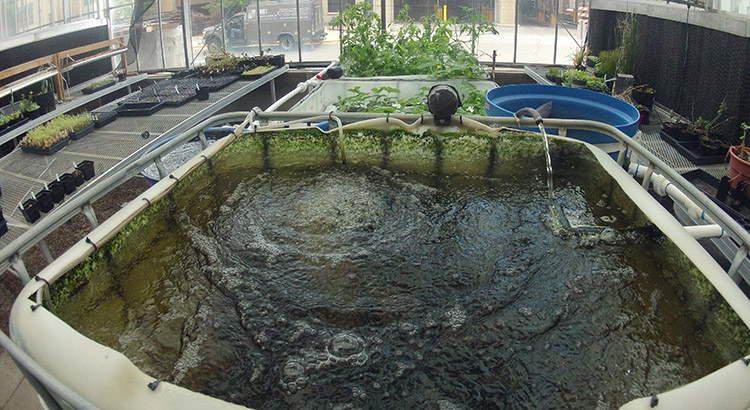College of Arts and Sciences Biology Program Professor Gaston Small and post-doctorate student Paliza Shrestha secured the grant to further their project, “Soil Amendments for Enhanced Phosphorus Retention: Implications for Green Infrastructure Design,” a continuation of Small and students’ ongoing research around turning drinking water treatment residual (WTR) into a resource. (“The residual has a high calcium and aluminum content, which makes it good at binding phosphorus,” Small said.)
Small, Shrestha and several St. Thomas students will travel to Boston in June to compete against 13 other teams for a Phase II grant and additional funding beyond the $15,000 Phase I grant. (This is the second time Small and a team have recently been in this competition; they also received a Phase I award and earned an honorable mention in the National Student Design Expo in 2015.)
“It’s a big opportunity in terms of getting national exposure for the sustainability research we are doing at St. Thomas,” Small said.
“I applaud Dr. Shrestha, Dr. Small and their student collaborators for receiving this grant and the opportunity to present their findings to a national audience," said Amir Nadav, assistant director of campus sustainability at St. Thomas. "This recognition testifies to both the importance and potential of their research into innovative strategies to reduce the leaching of phosphorus into groundwater."
The P3 research grants program challenges students to research, develop and design innovative projects that address challenges involving all areas of environmental protection and public health, something Small and his students’ research has been working toward for years. Beyond the waste water treatment residual, Small and his students have also received funding to examine urban agriculture and the downsides of using compost in urban gardens as it leaches into groundwater and ultimately becomes a pollutant. This Phase I EPA grant will research whether applying a layer of WTR below rain gardens is effective and capturing the phosphorus that leaches out of the compost, Small said; the St. Thomas team experimented with the Stewardship Garden on the St. Paul campus last summer.







